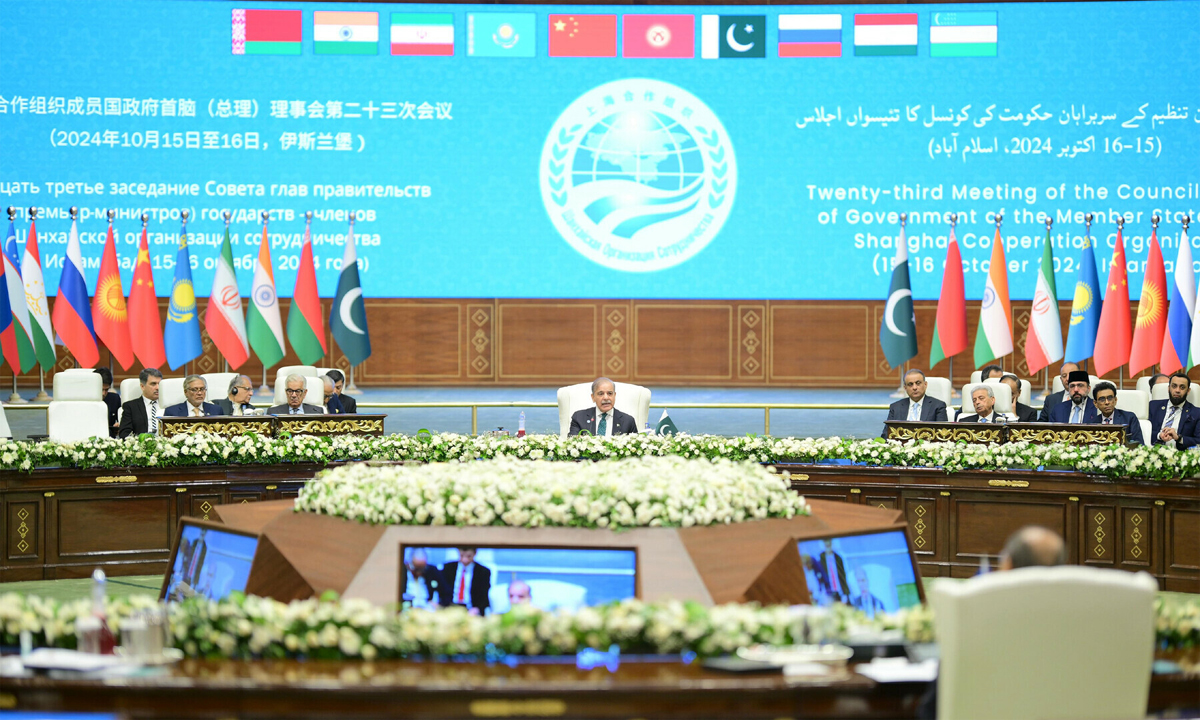
Online Desk: Pakistan hosted the 23rd meeting of the Council of the Heads of Government (CHG) of the SCO Member States last week. The summit proceedings manifest that SCO has evolved into an important multilateral forum aiming at non-traditional security challenges and distancing from military bloc politics. Nevertheless, the members expressed their strong opposition to the sanctions levied against states, including various members of the Organization by the United States. Besides, they endorsed the significance of China’s Belt and Road Initiative for global economic prosperity and contemplated de-dollarizing the trade among the member states.
The two-decade United States-led war on terrorism had ruptured Pakistan’s image as an internally secure state. It generated an impression of the country’s incapability to host a mega multilateral event like the SCO summit. Previously, it convened crucial international gatherings, i.e., the OIC Special Summit in 1997. Hence, the recent SCO summit has raised the stature of Pakistan in the community of nations. The participation of eight prime ministers and other delegates reinforced Pakistan’s role in regional geopolitics and exhibited its vitality in regional connectivity for economic and trade cooperation. For instance, the attendance of the representatives from international organizations, such as the Conference on Interaction and Confidence Building Measures in Asia, the Commonwealth of Independent States, and the European Economic Community, underlines the host country’s significance for regional connectivity and economic stability.
Prime Minister Muhammad Shehbaz Sharif, as the summit chair, emphasized the objective of the 23rd SCO meeting—”Strengthening Multilateral Dialogue; Striving towards a sustainable peace and Prosperity.” It is grounded on the Shanghai Spirit—mutual trust, mutual benefit, equality, consultation, respect for the diversity of civilizations, and pursuit of joint development. He advocated economic cooperation, regional stability, and climate change. Premier said, “Together, we have the potential to drive socio-economic progress, enhance regional peace and stability, and improve the quality of life for our citizens.” He sounds spot-on while highlighting opportunities for cooperation in the transportation and energy sectors within the region. If the Turkmenistan-Afghanistan-Pakistan-India (TAPI), CASA-1000, and Iran-Pakistan gas pipeline projects were operationalized, India and Pakistan’s energy problems could be resolved.
India’s External Minister Jaishankar’s attitude and speech at the forum indicated New Delhi’s malice against Islamabad. The SCO-CHG summit allowed the participants to conduct bilateral meetings to deliberate on issues of mutual interest. Premier Shehbaz did bilateral meetings with his counterparts on the summit’s sidelines. However, India’s External Minister Jaishankar and Pakistan’s Foreign Minister Dar did not avail the opportunity to meet on the sidelines of the SCO summit to end the diplomatic deadlock and recalibrate India-Pakistan diplomatic relations. The SCO has gradually emerged as an essential Eurasian multilateral organization. Hosting the 23rd CHG-SCO summit in Islamabad has provided Pakistan with an opportunity to quash maligning propaganda against it and pursue its geopolitical objectives in the Eurasian region.






